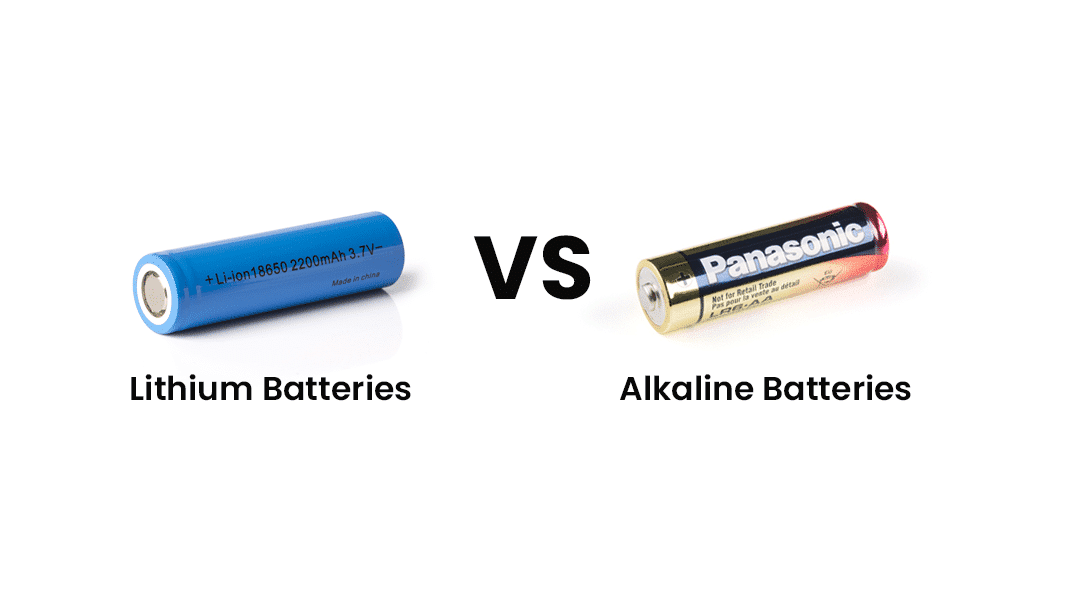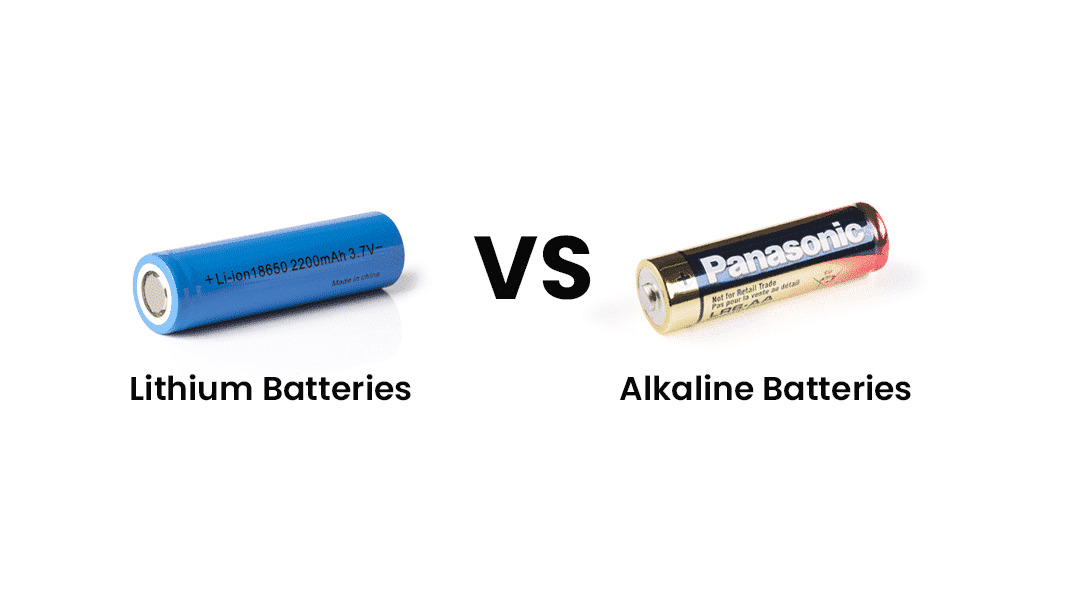Tired of constantly changing your AA batteries for various devices? Lithium and alkaline AA batteries are popular options, but which one is better? In this post, we’ll explore the differences between these two types to help you find the right fit for your needs in the great lithium vs alkaline battery debate!
Lithium AA Batteries vs Alkaline AA in size
When comparing lithium and alkaline AA batteries in terms of size, there is generally no significant difference. The standard size of an AA battery is approximately 50mm in length and 14.5mm in diameter. This size is consistent for both lithium and alkaline AA batteries, as they adhere to standardized dimensions to ensure compatibility with a wide range of devices.

Differences between Lithium and Alkaline AA batteries
When choosing AA batteries, understanding the differences between lithium and alkaline options is key.
- Lifespan:
- Lithium AA batteries have a longer lifespan, requiring less frequent replacements, beneficial for high-drain devices like cameras or gaming controllers.
- Voltage Output:
- Both provide 1.5 volts initially, but lithium batteries maintain performance longer as they discharge, ensuring devices run efficiently.
- Temperature Tolerance:
- Lithium batteries excel in extreme temperatures, performing well in both cold and hot conditions.
- Alkaline batteries struggle in extremes, potentially losing power quickly.
- Weight Considerations:
- Lithium AA batteries are lighter due to their chemical composition, making them suitable for on-the-go or outdoor activities.
In summary, lithium and alkaline AA batteries differ in lifespan, voltage output, temperature tolerance, and weight, essential factors for choosing the right battery for your needs!
Advantages of Lithium AA batteries
Lithium AA batteries offer distinct advantages, making them a preferred choice over alkaline counterparts.
- Longer Shelf Life:
- Lithium batteries retain charge for an extended period, ideal for occasional or bulk users.
- Lightweight and Compact:
- Ideal for portable devices like cameras or remote controls, lithium batteries are lighter and more compact, ensuring convenience.
- Higher Energy Density:
- Lithium batteries provide more power for a longer duration, making them suitable for high-performance devices like cameras or gaming controllers.
- Temperature Resilience:
- Perform well in extreme temperatures, ensuring reliability in freezing cold or scorching hot conditions.
In summary, lithium AA batteries excel in longevity, portability, power output, and temperature resilience, giving them an edge over alkaline counterparts!
Advantages of Alkaline AA batteries
Alkaline AA batteries come with practical advantages that make them a popular choice for powering various devices.
- Widely Available and Affordable:
- Accessible and budget-friendly, alkaline batteries are widely available, ensuring convenience for most users.
- Long Shelf Life:
- Alkaline batteries retain power for several years, allowing users to stock up without worrying about expiration dates.
- Consistent Performance:
- Offer stable voltage output throughout their lifespan, ensuring reliable power for high-drain devices like digital cameras or game controllers.
- Higher Capacity:
- Compared to other battery types, alkaline AA batteries have higher capacity, lasting longer before needing replacement.
- Temperature Versatility:
- Perform well across a range of temperatures, providing steady power in freezing cold or scorching hot conditions.
In summary, alkaline AA batteries bring practicality, affordability, and reliable performance to the table, making them a trusted choice for various devices.
Cost comparison
Choosing between lithium and alkaline AA batteries involves considering their cost implications. Here’s a concise overview:
- Upfront Cost:
- Lithium AA batteries have a higher initial cost due to advanced technology.
- Alkaline batteries are cheaper initially.
- Long-Term Value:
- Lithium batteries offer longer lifespan, potentially lasting up to four times longer than alkaline ones.
- Alkaline batteries may drain faster, requiring more frequent replacements.
- Device Performance:
- Lithium batteries provide consistent voltage output, potentially improving device performance.
- Some devices may benefit from the longevity and consistent power of lithium options.
In summary, while lithium AA batteries have a higher upfront cost, their longer lifespan and potential for improved device performance may offer long-term value. Consider personal usage habits and device compatibility when making a decision between these two battery types.
Environmental impact
Environmental considerations play a crucial role in choosing between lithium and alkaline AA batteries. Here’s a concise overview:
- Lithium Batteries:
- Viewed as more environmentally friendly due to longer lifespan and less overall waste production.
- Higher energy density requires fewer resources for production.
- Alkaline Batteries:
- Recyclable, with many programs available for disposal.
- Recycling processes vary by location and facility availability.
- Responsibility and Sustainability:
- Both battery types impact the environment, emphasizing the importance of responsible usage and disposal practices.
- Consider rechargeable options to significantly reduce waste over time.
In summary, while lithium batteries are often seen as more eco-friendly, responsible usage and recycling practices are essential for both lithium and alkaline AA batteries to minimize environmental impact.
Personal preference and intended use
Choosing between lithium and alkaline AA batteries is a decision influenced by personal preferences and intended use. Here’s a concise overview:
- High-Drain Devices:
- For devices like digital cameras or gaming controllers, lithium AA batteries with higher energy density are preferable, offering longer-lasting power and better performance.
- Low-Drain Devices:
- Alkaline AA batteries may suffice for devices like remote controls or clocks, offering decent performance at a generally lower cost.
- Environmental Impact:
- Alkaline batteries are easier to recycle but may contain harmful substances like mercury.
- Lithium batteries have lower toxicity levels and a longer lifespan but are less easily recyclable.
- Personal Preference:
- Consider factors like price point and convenience in alignment with personal values.
- Some prioritize cost-effectiveness, while others may invest in higher-quality lithium batteries for electronic gadgets.
In summary, the decision hinges on factors such as usage frequency, specific devices, environmental concerns, budget constraints, and personal preferences. Weighing these factors collectively ensures an informed choice that aligns with practicality and values.




